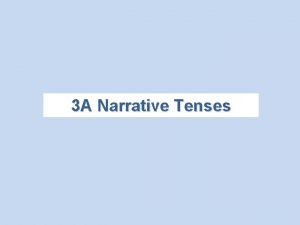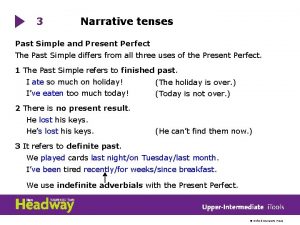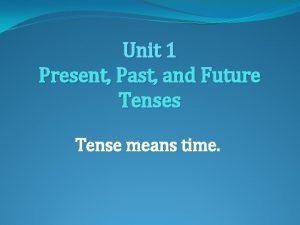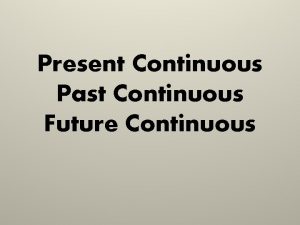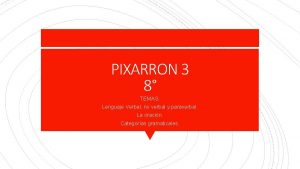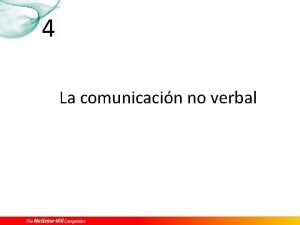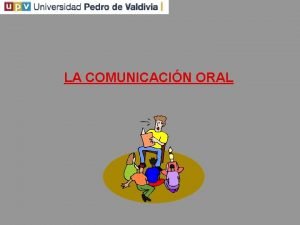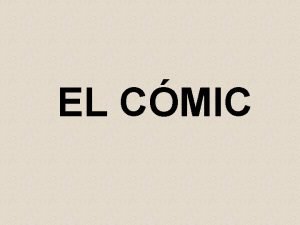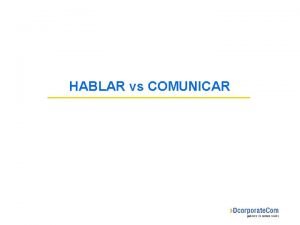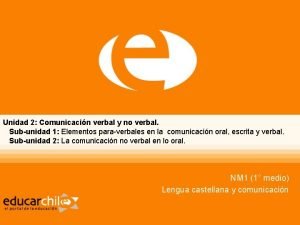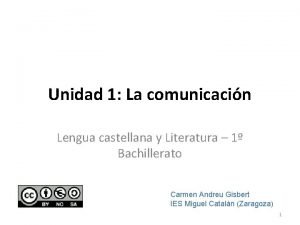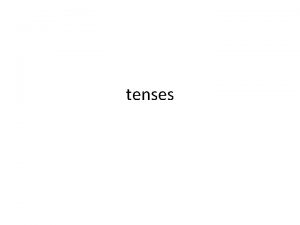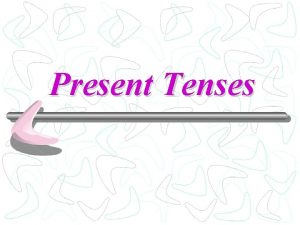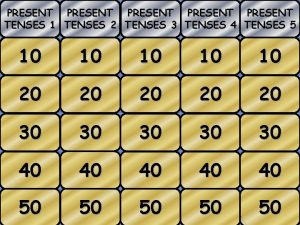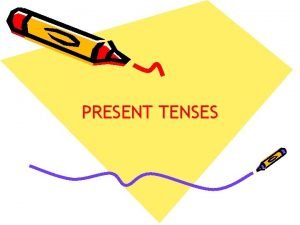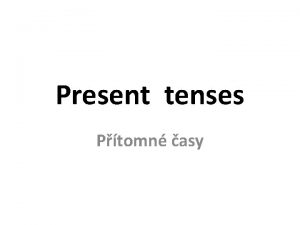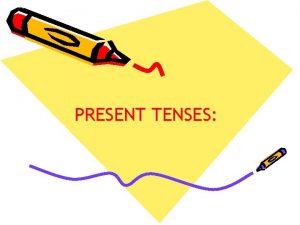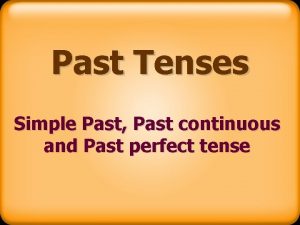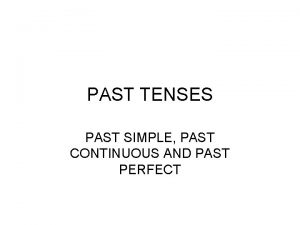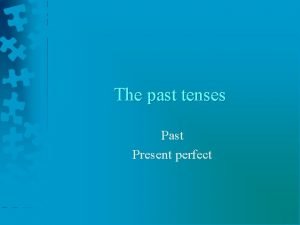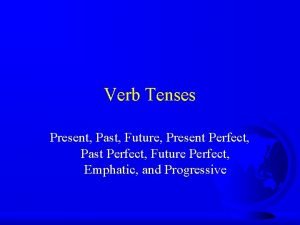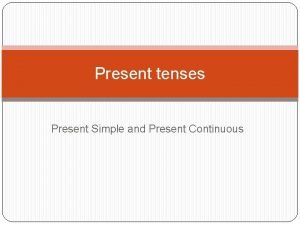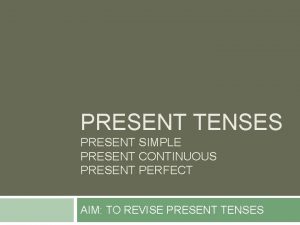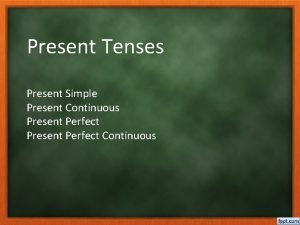Verbal Tenses B 2 Present Tenses Past Tenses

Verbal Tenses B 2

Present Tenses Past Tenses Future Tenses

PRESENT TENSES Simple present: Present continuous: Present perfect:

B 2 PRESENT TENSES 1 out of 6 I think that you are wrong. (= I believe) I’m thinking about you all the time. Most stative verbs can also be used in the continuous form when referring to the action itself.

B 2 PRESENT TENSES 2 out of 6 Little children are used to going to bed early in the evening. It was hard to get used to waking up so early. Be used to: Get used to: Be accustomed to. Refers to the process of being accustomed.

B 2 PRESENT TENSES Present perfect simple 3 out of 6 Present perfect continuous I have read three books this year. EMPHASIS: Action (result) I have been reading the whole evening. EMPHASIS: Duration I have finished my homework! Not finished Finished action We have been walking for ages. My clothes are dirty because I have been playing football Past action with a present evidence

B 2 PRESENT TENSES *gone to: Not back yet. Susan has gone to Tokyo. *been to: The person is back. Susan has been to Tokyo once. *been in: The person lives there. Susan has been in Tokyo for two years. 4 out of 6

B 2 PRESENT TENSES 5 out of 6 You are continuously turning up late! We can use the present continuous to express an ANNOYING habit (irritates us!). We can use adverbs like “constantly”, “always” and “forever” in the same way.

B 2 PRESENT TENSES 6 out of 6 This is the first/second… time that I HAVE … This is the first time that I’ve come to this restaurant.

PAST TENSES Simple past: Past continuous: Past perfect:

B 2 PAST TENSES 1 out of 3 Jim used to drink tea, but now he prefers coffee. Used to: Expresses past habits in general. Jim would always make his mother a cup of tea after lunch. Would: Exresses past habits (actions NOT states).

B 2 PAST TENSES 2 out of 3 Before the train arrived, Susan managed to push her way to the front of the crowd. If before or after is used, the past perfect is optional.

B 2 PAST TENSES 3 out of 3 After struggling with him, Susan pulled the bag from his hand. They introduce the main event in the past. The subjects of both clauses must be the same.

Certainty FUTURE TENSES Simple present: Present continuous: Be going to: Will:

B 2 FUTURE TENSES 1 out of 5 Future Perfect & Future continuous FUTURE PERFECT An event that will be finished before a specified time in the future. In two years’ time I will have finished my degree FUTURE CONTINUOUS An action that will be in progress in the future. By then, I will be looking for a job 2 YEARS

B 2 FUTURE TENSES 2 out of 5 Time clauses in English When I retire, retire I’ll travel around the world. I will come back after I have had my lunch. We only use present tenses after time conjuctions (when, while, before, after, until, by the time and as soon as).

B 2 FUTURE TENSES 3 out of 5 Use of “Shall” Shall I do the shopping with you? Shall we go to the cinema? We use SHALL with “I” and “WE” both, to suggest and offer.

B 2 FUTURE TENSES 4 out of 5 Formal use of “Future Continuous” I’m afraid we can’t tell you anything yet. The board of directors will be making an official announcement tomorrow. In very formal situations, we use the FUTURE CONTINUOUS to talk about plans.

B 2 FUTURE TENSES 5 out of 5 EXPRESSION: to be due to Are you due to hand in homework today? . Use this expression to talk about things that are expected or planned to happen at a certain time (scheduled).
- Slides: 19
